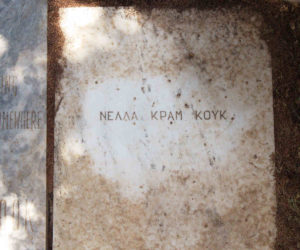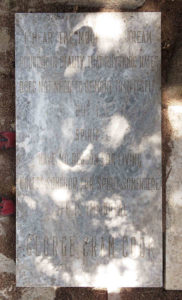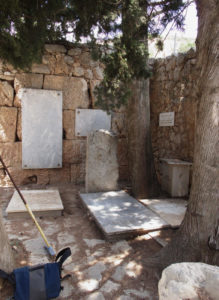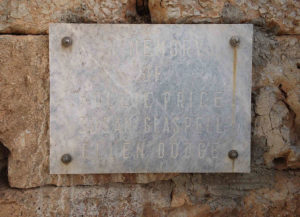I would like to blog a lot about the terrible political situations that are sweeping the globe, but there is so much of that already from all sides that I have decided not to do so. I re-Tweet, comment, etc…already. That’s enough from me. I would like to tell you a story instead. I hope that, in some small way, it helps to dispel some of the darkness.
In the late 1890s, at the University of Iowa, there was a writer by the name of George Cram Cook. From 1896 to 1899 he taught what is considered by many to be the very first creative writing course. He titled it ‘Verse-Making.’ When he left in 1899, the course was continued by his colleagues and became what is now known as the Iowa Writer’s Workshop. Cook then went to Stanford University and taught a similar course and, in 1915, after marrying his second wife Susan Glaspell, moved to Provincetown, Massachusetts where they founded the Provincetown Players, an avant-garde theatre group. He produced plays written by Glaspell, some of Eugene O’Neill’s first plays and also those of Edna St. Vincent Millay. That is just a small sample. He worked with the group until 1919. A long-time Hellenophile, he moved to Greece in 1922, settling in Delphi, home of the Oracle. He died in Delphi 2 years later after contracting glanders from a dog bite. The Greek government granted him status to be buried there, his grave marked by an ancient stone from the Temple of Apollo. His daughter Nella was buried alongside him in the town necropolis and there is a memorial to Glaspell, Cook’s mother Ellen Dodge and his first wife Mollie on the wall above.
Jump ahead about 50 years. My mother, the ever curious historian, began to research the P’town Players, Glaspell, Cook, et al…At that time my family lived in Provincetown as summer residents and were a part of the arts community, largely due to my novelist father. Mom’s curiosity was such that she planned an excursion to Greece with my grandmother. Grammaw had lived and worked in Athens and Thessaloniki in the mid-1960s and, as she was more familiar with the lay of the land, joined my mother in a search for Cook’s grave. I do not remember if they found it, and I sense there was some disappointment to their quest. I would have been about 7 or 8 years old at the time, so this tale is bathed in the slippery mist of memory. I am skipping a lot here, especially about Grammaw and her interest. Another story for a later time.
Jump ahead again to yesterday, 23 June, 2018. I had a free day in Athens so I signed up for a tour of Delphi. I had been there in 2006, but the Mom/Grammaw/Cook story had slipped my mind. I decided to rectify this and follow their footsteps to find the grave. The tour was pleasant enough and an economical way to get there, see the sacred site, the superb museum, have lunch and be transported back to the hotel later in the afternoon. My tour mates were mostly American and Australian tourists and were curious about this aspect of my trip. It was fun. They enjoyed the tale as well. I related a more truncated, less rambling version, by the way.
During a free 45 minutes between the site visit and the museum, I scurried up to the modern town and asked a local about the cemetery. It was easy to find, and when I entered I queried two workmen if they knew of the grave. “No..no English here…no Americans here…” Undaunted, I looked around the small cemetery. Among the cleanly carved headstones and markers, one stood out, up in the northeast corner, beneath a cypress tree–an ancient marble stele. There it was. After sweeping off the graves and taking some pictures, I looked at my watch. I had just enough time to make it back down the hill and join my group for the museum tour.
–JDCM




